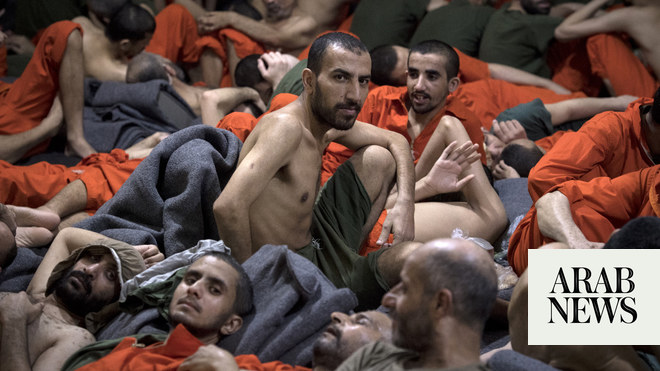
The gains for parties and politicians who support Hezbollah’s possession of weapons, and agree with the party fighting to defend Assad’s regime from his rebelling population, will mean dire days ahead for the divided country.
The post-election celebration by Hezbollah militants, who managed to hang their flag on a Rafiq Hariri statue, can only point to tough days ahead to unite a divided Lebanese population.
LONDON: Election results in Lebanon show the country has once again tilted in the direction of an era of Syrian and Iranian control.
Hezbollah and its political allies won just more than half the seats in Parliament, boosting the Iranian-backed group fiercely opposed to Israel, and underlining Tehran’s growing regional clout.
The elections have put an end to the movement born after the assassination of the former Prime Minister Rafiq Hariri in 2005 to free Lebanon from its enslavement to foreign governments.
Lebanon, as a result, is once again part and parcel of the so called Tehran-led Shiite crescent from Iran through Iraq and Syria to Lebanon.
Three tactics were used by Hezbollah and its allies to wipe out once and for all the movement that opposed them.
Firstly, there was the new complex and sectarian-based election system adopted last year that made no sense to the disillusioned Lebanese electorate. More than 50 percent of registered voters stayed away from the ballot boxes, more than at the last election nine years ago.
The second was the use of assassination as a tool to silence dissent. Over the past 14 years, Hezbollah, the Assad regime in Syria, and Iran allegedly conspired to reduce the March 14 coalition’s majority in the Lebanese Parliament, according to several UN resolutions and the findings of an international tribunal for Lebanon.
The assassinations removed six MPs, politicians and journalist as well as army and interior-security generals. The trial of four Hezbollah operatives accused of planning and executing the car bomb that killed Rafiq Hariri has been ongoing for four years at the special tribunal at the Hague.
Since then, intimidation was used in a variety of ways to silence anti-Hezbollah politicians as well as areas and communities critical of the militia — the regional pawn of Iran, which declares itself the anti-Israeli resistance group.
People linked to the March 14 movement were often harassed by thugs belonging to Hezbollah at rallies, and many were left to fend for themselves as Lebanon’s army and security forces remained neutral for fear of clashing with the heavily armed militia.
This was evident on May 7, 2008, when neighborhoods of Beirut and other anti-Hezbollah cities woke up to a takeover by Hezbollah militants while Lebanon’s army and police forces stood by, further eroding the authority of the Lebanese state.
The gains for parties and politicians who support Hezbollah’s possession of weapons, and agree with the party fighting to defend Assad’s regime from his rebelling population, will mean dire days ahead for the divided country.
Their gains risk complicating Western policy in Lebanon, which is banking on foreign aid and loans to revive its stagnant economy and receiving US military support.
An Israeli minister said the outcome showed the Lebanese state was indistinguishable from Hezbollah, signalling the risk of Israel striking Lebanon’s government in a future war.
The post-election celebration by Hezbollah militants, who managed to hang their flag on a Rafiq Hariri statue, can only point to tough days ahead to unite a divided Lebanese population.
In Lebanon, the day-to-day problems will continue. Electricity will still be in short supply, garbage-processing plants will continue to be woefully inadequate. Elections in Lebanon have never solved the problem of corruption across all public sectors.
No one knows when Hezbollah’s militias are likely to withdraw from Syria, and a Saad Hariri government is unlikely to challenge the group to hand over its weapons or stop its stockpiling of ballistic missiles earmarked to destroy Israel, but clearly used to destroy Syria in the interim.
The election may just have been another parliamentary vote in a small country, but in Lebanon, where wars are waged by proxies, and the divides run deep between secular and religious, Christians, Shias and Sunnis, one thing is certain — the results will further bury hope that the country will be free from outside interference for years to come.











